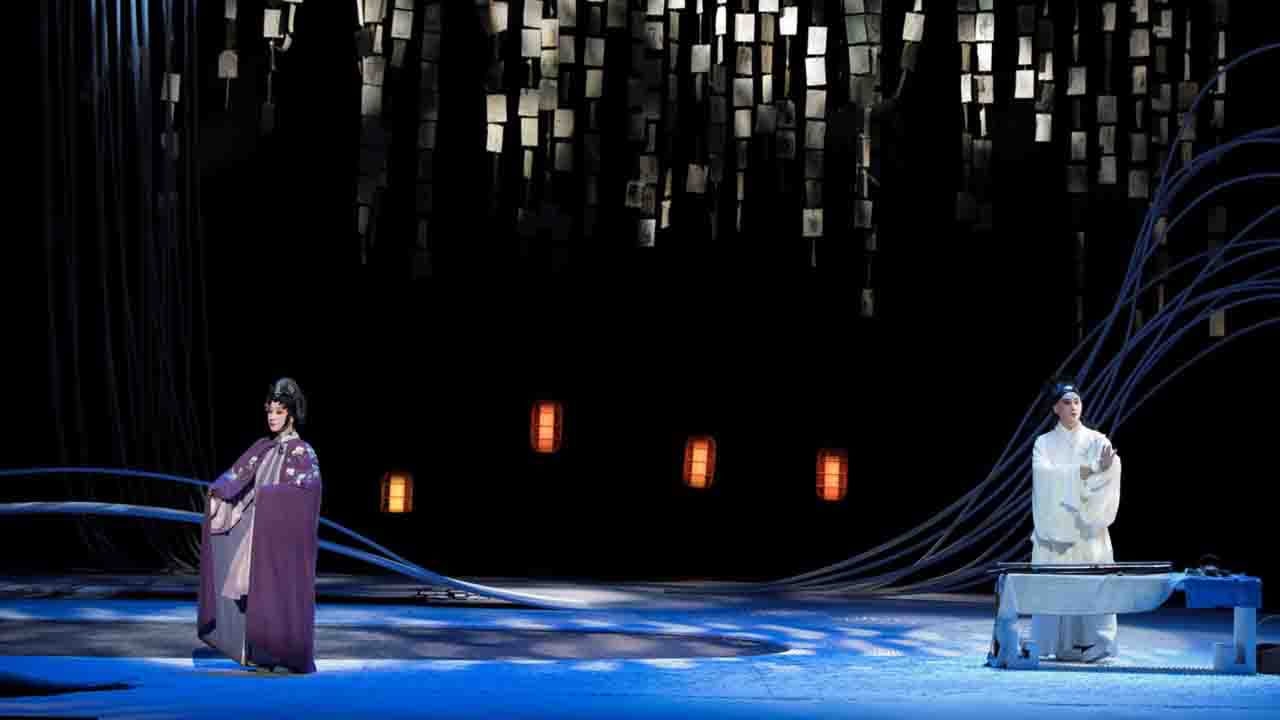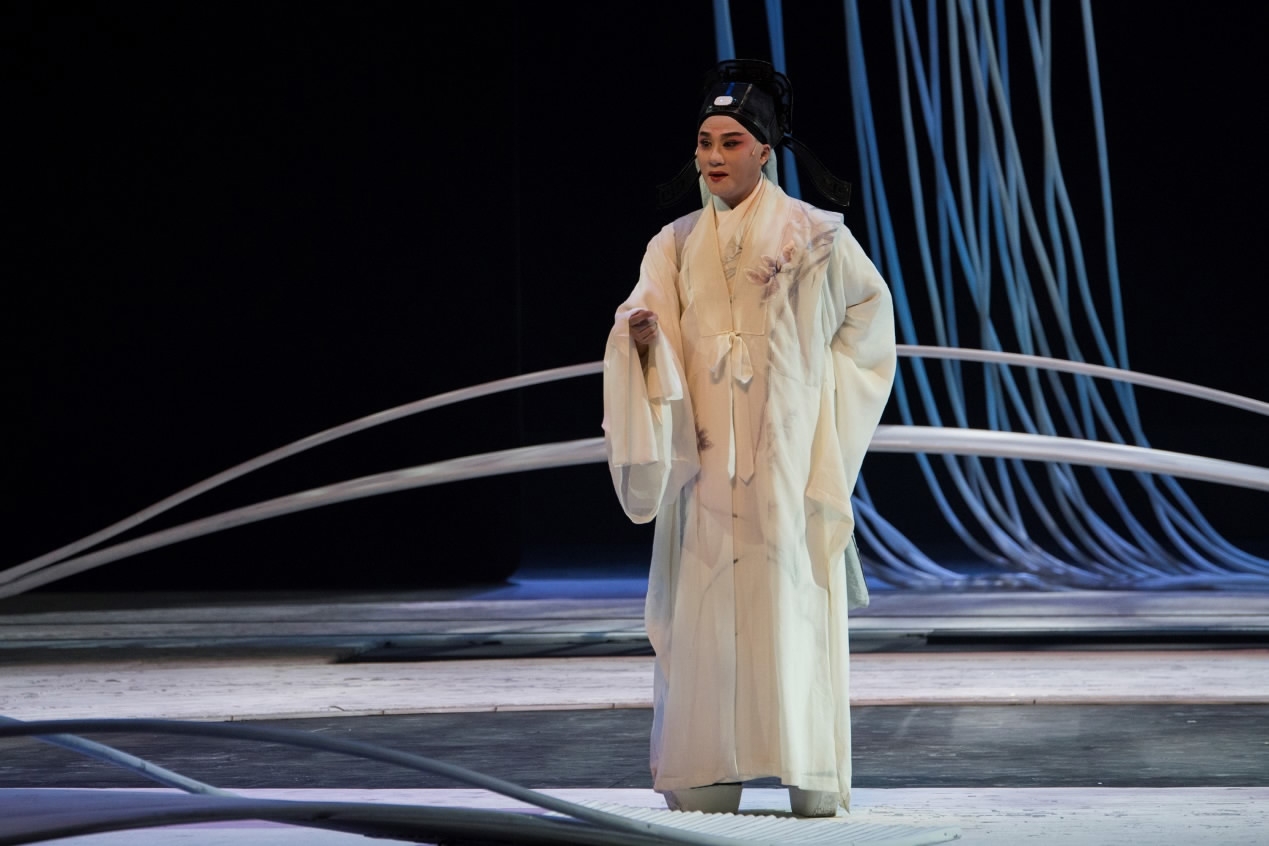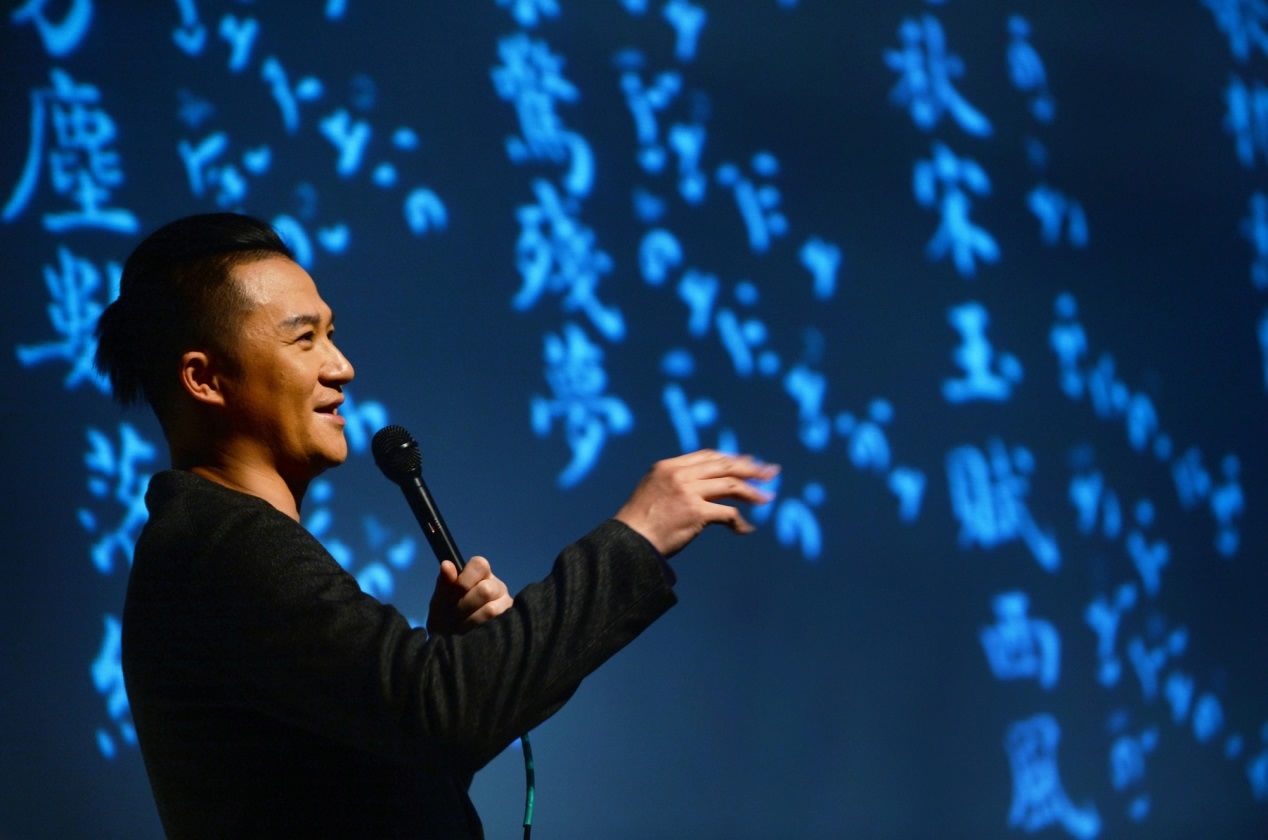
Culture & Sports
20:14, 21-Mar-2017
Breathing new life into Kunqu: Zhang Jun presents original show in Beijing
Updated
11:07, 28-Jun-2018

By CGTN's Liu Wenwen & Yang Ran
Kunqu opera is one of China's oldest and most influential art forms, and one well-known Kunqu artist is giving the ancient artform a twist. Hailed as the "prince of Kunqu", Zhang Jun presents his first original Kunqu work, "Blossoms on a Spring Moonlit Night" in Beijing.
A fantasy story which transcends life and death, taking a 1,300-year-old Tang poem as inspiration, "Blossoms on a Spring Moonlit Night" is an epic tale of star-crossed lovers that spans the worlds of men, ghosts and deities. The three-hour production captures the romance and elegance of Kunqu, while introducing contemporary aesthetics.
"It's more than a sentimental love story. The play is filled with illusion and is a reflection of the relationship between the universe and individuals. That's why I think Kunqu is a very suitable art form to present the story," Zhang says.

Zhang Jun plays the poet Zhang Ruoxu. / Photo by Wang Xiaoxi
Zhang Jun plays the poet Zhang Ruoxu. / Photo by Wang Xiaoxi
In recent years, Zhang has been expanding the dimensions of Kunqu Opera.
In 2010, he collaborated with Oscar-winning composer Tan Dun to take on an unprecedented challenge: staging the “Peony Pavilion,” one of China’s oldest and most popular Kunqu titles, in a real garden.
In 2012, he fused the sounds of new age, jazz, rock'n'roll and electronica with traditional Kunqu Opera scores.
In 2016, Zhang even rendered the timeless Shakespearean classic, "Hamlet" in the form of traditional Chinese opera.
"It is really challenging to produce an original Kunqu Opera today due to the complicated verses and the rich cultural connotation of the art form. It's like dancing with shackles. But our creation is based on sticking to the tradition of Kunqu opera. That's the bottom line, "Zhang tells CGTN.

UNESCO Artist of Peace, Zhang Jun. / CFP Photo
UNESCO Artist of Peace, Zhang Jun. / CFP Photo
"Blossoms on a Spring Moonlit Night" debuted in Shanghai in 2015 and won acclaim from both critics and fans. During the past two years, it has been performed more than 20 times in China.
Zhang received UNESCO Artist of Peace award in 2011, for his long term commitment to promoting the Chinese intangible cultural heritage. Through the efforts of artists like this Shanghai-native, the ancient Chinese art form is making a powerful comeback in China, as well as on the global stage.

SITEMAP
Copyright © 2018 CGTN. Beijing ICP prepared NO.16065310-3
Copyright © 2018 CGTN. Beijing ICP prepared NO.16065310-3